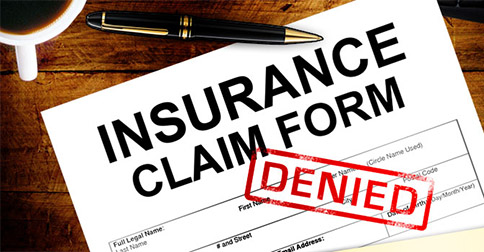In the state of California, most employers are legally required to carry workers’ compensation insurance. This coverage is designed to protect employees by paying for medical expenses and covering part of their lost wages when they suffer work-related injuries or illnesses. However, just because coverage exists doesn’t mean every claim will be approved. Many claims are denied due to technical errors, legal nuances, or insufficient documentation, leaving injured workers confused and financially vulnerable.
This comprehensive guide explores everything you need to know about why workers’ compensation claims are denied, how to navigate the appeals process, and what specific legal strategies and documentation can help strengthen your case.
Workers’ Compensation: What It Is and Who Is Covered in California
Workers’ compensation insurance is a state-mandated, no-fault insurance system that ensures employees can access medical treatment and wage replacement without having to prove employer negligence. It typically covers:
- Medical treatment costs
- Temporary disability benefits
- Permanent disability compensation
- Supplemental job displacement benefits
- Death benefits (to surviving dependents)
Who Qualifies?
Nearly all employees in California , whether full-time, part-time, or seasonal , are entitled to these benefits, including undocumented workers. Independent contractors and volunteers, however, may not be eligible unless proven otherwise under specific employment tests.
Common Reasons Workers’ Compensation Claims Get Denied
A workers’ comp claim might get denied by an employer or the plan administrator if the injured worker did not report the injury on time. Waiting several days to inform an employer and write up the injury incident opens up room for doubt and could trigger a claim denial. That same goes for missing the deadline for filing a claim. If an employer has reason to doubt a claim is valid, it could investigate, request a second medical opinion, and deny it for a justifiable reason.
1. Late Reporting
California requires injured employees to report their injury within 30 days of the incident. Failing to do so can raise doubts about the legitimacy of the claim. Delays may lead to assumptions that the injury occurred outside of work or was fabricated.
2. Missed Filing Deadlines
Workers must file a DWC-1 Claim Form and submit it to their employer within one year of the injury date. Failure to file on time may permanently bar compensation.
3. Discrepancies in Medical Records
Conflicting medical evaluations or inconsistent treatment notes can lead to denial. For example, if an initial report states a back strain and a follow-up describes a disc herniation, insurers may question the injury’s authenticity.
4. Injury Not Work-Related
Claims can be denied if the employer or insurer determines that the injury occurred during a non-work activity, lunch break, or commute.
5. Safety Violations or Intoxication
If you were under the influence of drugs or alcohol or violated a posted safety rule, your claim might be deemed invalid.
What Happens When Your Claim Is Denied?
A claim denial can trigger an appeal by the injured worker, and should when the claim is valid. A denial letter should clearly outline the reason why and give you a deadline for filing an appeal. You could ask for a meeting with your job provider or the insurance adjuster for the insurer underwriting the claim to resolve a simple dispute. More serious disputes will require a formal appeal to an administrative law judge and will need supporting evidence, including documentation of the injury by a doctor and other medical professionals.
Once you receive a Notice of Denial, you have the right to contest the decision through California’s Workers’ Compensation Appeals Board (WCAB). But the process involves strict timelines and detailed documentation. A successful appeal depends on how thoroughly you prepare and present your case.
Strengthening Your Appeal: Evidence and Strategy
If an appeal to an administrative law judge is needed, an experienced workers’ compensation attorney can help prepare the best case. A review of your current documentation can help to identify gaps in your argument that a simple request to your treating physician or other medical professionals might fill. You can also better understand the arguments behind your denial and whether they are based on valid reasons or are simply an abuse of the system by an employer or insurance adjuster.
Key Documents That Strengthen Your Appeal:
- Initial injury reports
- Doctor’s clinical notes & evaluations
- Photographs or video of the injury location
- Witness testimony from coworkers
- Medical bills and treatment history
- Workplace accident logs or OSHA reports
You may also need to undergo an evaluation by a Qualified Medical Evaluator (QME), or in more complex cases, an Agreed Medical Evaluator (AME). These doctors provide impartial opinions that carry legal weight in appeals.
Key Legal and Medical Dimensions Often Overlooked
To create semantic completeness and topical depth, here are additional important dimensions:
Understanding Medical-Legal Evaluation Types
- QME (Qualified Medical Evaluator): Chosen by the state to evaluate claims with disputes.
- AME (Agreed Medical Evaluator): Chosen jointly by worker and employer/insurer.
- IMR (Independent Medical Review): Used to resolve disputes over treatment denials based on medical necessity.
Claim Status Types in California
| Claim Status | Meaning |
|---|---|
| Accepted | The claim is fully approved, and benefits begin |
| Denied | The insurer believes the injury is not work-related or invalid |
| Delayed | Further investigation is required before acceptance |
| Settled | Resolved via compromise (Stipulation or Compromise & Release) |
Claim Denials vs. Employer Retaliation
Not all denials are clean. In some instances, workers may face subtle or blatant retaliation for filing a claim. Retaliatory actions may include:
- Sudden demotion
- Pay cuts
- Reduced hours
- Unjustified termination
California Labor Code Section 132a provides protection and entitles you to additional compensation if your employer discriminates against you for filing a workers’ comp claim.
What Benefits Are Denied Workers Missing Out On?
If your claim is denied unjustly, you may lose access to:
- Immediate medical treatment
- Temporary disability benefits (usually 2/3 of weekly wages)
- Permanent impairment compensation
- Job retraining assistance
- Mileage reimbursement for medical appointments
FAQs: Clarifying Complex Scenarios
How long do I have to appeal a denied workers’ comp claim in California?
You must file an Application for Adjudication of Claim within one year from the injury or the date benefits were last provided.
Can I get a second medical opinion after a denial?
Yes. You can request a QME evaluation through a panel issued by the Division of Workers’ Compensation (DWC).
Is retaliation for filing a claim illegal?
Yes. If your employer retaliates, you may file a 132a claim and seek damages, including job reinstatement and financial compensation.
How much does a workers’ comp attorney cost?
Most work on a contingency basis, meaning they get paid only if you win. Their fee is usually 15% of your awarded benefits, approved by a judge.
What to Expect During Your Free Legal Consultation
At Hussain & Gutierrez, our experienced workers’ compensation attorneys take the time to:
- Review your denial letter and documentation
- Determine if you have grounds for appeal
- Connect you with a reliable QME or AME
- Explain your rights and deadlines
- Guide you step-by-step through the legal process
Our consultations are completely free, confidential, and without obligation.
Call now to discuss your case: 888 997-3701
Or visit us at HussainGutierrezLaw.com



